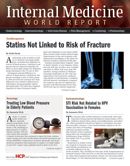Lowering Blood Pressure in Diabetics with Lower Cardiovascular Disease, Stroke Risk
Lowering the blood pressure (BP) of patients with type 2 diabetes was found to improve mortality results and lowered the probability of cardiovascular disease (CVD) and heart disease events.

Lowering the blood pressure (BP) of patients with type 2 diabetes was found to improve mortality results and lowered the probability of cardiovascular disease (CVD) and heart disease events.
According to a release, projections indicated 400 million individuals worldwide would be diagnosed with type 2 diabetes mellitus by 2030. Diabetics also tend to have high BP — a trend that has sparked a debate on which candidates would benefit from BP-lowering treatment and what constitutes as an optimal BP level.
Analyzing 40 published trials, researchers from the University of Oxford and University of Sydney assessed 100,354 diabetic participants who underwent BP-lowering treatment and looked for health outcomes including all-cause mortality, cardiovascular events, coronary heart disease events, stroke, heart failure, retinopathy, new or worsening albuminuria, and renal failure.
In doing so, the investigators found for 10—mm Hg decrease in systolic BP there was a lower likelihood of mortality (relative risk [RR], 0.87; 95% CI, 0.78-0.96), cardiovascular events (RR, 0.89 [95% CI, 0.83-0.95]; ARR, 3.90 [95% CI, 1.57-6.06]), coronary heart disease (RR, 0.88 [95% CI, 0.80-0.98]; ARR, 1.81 [95% CI, 0.35-3.11]), stroke (RR, 0.73 [95% CI, 0.64-0.83]; ARR, 4.06 [95% CI, 2.53-5.40]), albuminuria (RR, 0.83 [95% CI, 0.79-0.87]; ARR, 9.33 [95% CI, 7.13-11.37]), and retinopathy (RR, 0.87 [95% CI, 0.76-0.99]; ARR, 2.23 [95% CI, 0.15-4.04]).
“Among patients with type 2 diabetes, BP lowering was associated with improved mortality and other clinical outcomes with lower RRs observed among those with baseline BP of 140 mm Hg and greater. These findings support the use of medications for BP lowering in these patients,” the authors concluded in JAMA.
